![Guy, Barry / Ken Vandermark: Occasional Poems [2 CDs] (Not Two) Guy, Barry / Ken Vandermark: Occasional Poems [2 CDs] (Not Two)](https://www.teuthida.com/productImages/misc4/34849.jpg)
Capturing an exciting and cohesive live performance at Krakow's Alchemia club, documenting the first duo encounter between Chicago reedist Ken Vandermark and UK bassist Barry Guy, in nine spontaneous duets and soliloquies; Guy's dynamic bass explorations and Vandermark's versatility converge in an inspired interplay of rhythmic energy, textural innovation, and lyrical intensity.
In Stock
Quantity in Basket: None
Log In to use our Wish List
Shipping Weight: 5.00 units
EU & UK Customers:
Discogs.com can handle your VAT payments
So please order through Discogs
Sample The Album:
Barry Guy-double bass
Ken Vandermark-clarinet, saxophone
Click an artist name above to see in-stock items for that artist.
UPC: 5901549185935
Label: Not Two
Catalog ID: MW931-2
Squidco Product Code: 34849
Format: 2 CDs
Condition: New
Released: 2015
Country: Poland
Recorded at the Alchemia Club, in Krakow, Poland, November 22nd, 2014, by Rafal Drewniany.
"For British bassist Barry Guy the concert that produced this fine double disc package occurred at the end of a four day intensive residency in Krakow culminating in the premier of an ambitious new work by his Blue Shroud Band. While for Chicago reedman Ken Vandermark, the event was the final episode in two months on the road. But whether relief or exhaustion were the dominant feelings, neither resulted in any lowering of standards or resting on laurels. Occasional Poems captures in unvarnished fidelity both sets in their entirety from the storied Alchemia club before a packed and enthusiastic audience.
Even at 67 years of age, Guy's trademark hyperkinetic style shows no sign of slowing. His lightning switches between registers, and between bowing, plucking and an array of implements to variously interrogate and cajole novel textures from the bass, remain very much in evidence. Such speed of thought is also mirrored in his responsiveness to Vandermark's ever-changing amalgam of percussiveness, lyricism, timbral investigation, and repetition, which tangentially evoke a range of genres amid an unfettered outpouring.
Pairings with reedmen have proven a familiar format for Guy over the years, as recordings with Torben Snekkestad, Mats Gustafsson, Liudas Mockunas and of course Evan Parker attest. But it's a less common scenario for Vandermark, and in fact this concert represents the first time just the two of them have taken to the stage. Nonetheless the album documents a very strong meeting of minds. Or should that be a meeting of very strong minds? The poems on this particular evening -seven duets and two soliloquies, all conjured spontaneously from the air -are bursting with ideas.
They each pay close attention to what the other is doing and largely eschew oppositional strategies. And the outcome is all the more engaging as a result. In fact the opening "Nature is a Wolf" belts out of the gate in a such a relentless garrulous dash that even the listener is left gasping for air. The same maniacal energy manifests on "Light Cuts Shadow" where Vandermark shifts to clarinet for a spacey colloquy interrupted by sudden crescendos which gradually merge into another concentrated torrent.
Another highlight comes at the start of the second set on "States of Being" when Guy wields a brush, more like a drummer than a bassist, to accompany Vandermark's jagged swirling clarinet. It seems Vandermark's proclivity for insistent reiteration rubs off on Guy who is more rhythmic than usual throughout, but especially in "I Will Sing You of the Moments," a jerky exchange of tenor saxophone plosives and taut string thwacks.
Only rarely does one man overtly take the lead, but that's what happens in the last third of the otherwise turbulent "Riding the Air" where Guy initiates an intricately fingered bass coda against which Vandermark layers soothing sustained clarinet tones. But whatever the gambit, the music evolves in a bravura display of quick reflexes and inspiration."-For British bassist Barry Guy the concert that produced this fine double disc package occurred at the end of a four day intensive residency in Krakow culminating in the premier of an ambitious new work by his Blue Shroud Band. While for Chicago reedman Ken Vandermark, the event was the final episode in two months on the road. But whether relief or exhaustion were the dominant feelings, neither resulted in any lowering of standards or resting on laurels. Occasional Poems captures in unvarnished fidelity both sets in their entirety from the storied Alchemia club before a packed and enthusiastic audience.
Even at 67 years of age, Guy's trademark hyperkinetic style shows no sign of slowing. His lightning switches between registers, and between bowing, plucking and an array of implements to variously interrogate and cajole novel textures from the bass, remain very much in evidence. Such speed of thought is also mirrored in his responsiveness to Vandermark's ever-changing amalgam of percussiveness, lyricism, timbral investigation, and repetition, which tangentially evoke a range of genres amid an unfettered outpouring.
Pairings with reedmen have proven a familiar format for Guy over the years, as recordings with Torben Snekkestad, Mats Gustafsson, Liudas Mockunas and of course Evan Parker attest. But it's a less common scenario for Vandermark, and in fact this concert represents the first time just the two of them have taken to the stage. Nonetheless the album documents a very strong meeting of minds. Or should that be a meeting of very strong minds? The poems on this particular evening -seven duets and two soliloquies, all conjured spontaneously from the air -are bursting with ideas.
They each pay close attention to what the other is doing and largely eschew oppositional strategies. And the outcome is all the more engaging as a result. In fact the opening "Nature is a Wolf" belts out of the gate in a such a relentless garrulous dash that even the listener is left gasping for air. The same maniacal energy manifests on "Light Cuts Shadow" where Vandermark shifts to clarinet for a spacey colloquy interrupted by sudden crescendos which gradually merge into another concentrated torrent.
Another highlight comes at the start of the second set on "States of Being" when Guy wields a brush, more like a drummer than a bassist, to accompany Vandermark's jagged swirling clarinet. It seems Vandermark's proclivity for insistent reiteration rubs off on Guy who is more rhythmic than usual throughout, but especially in "I Will Sing You of the Moments," a jerky exchange of tenor saxophone plosives and taut string thwacks.
Only rarely does one man overtly take the lead, but that's what happens in the last third of the otherwise turbulent "Riding the Air" where Guy initiates an intricately fingered bass coda against which Vandermark layers soothing sustained clarinet tones. But whatever the gambit, the music evolves in a bravura display of quick reflexes and inspiration."-John Sharpe, allaboutjazz.com
Get additional information at All About Jazz
Artist Biographies
• Show Bio for Barry Guy "Barry John Guy (born 22 April 1947, in London) is a British composer and double bass player. His range of interests encompasses early music, contemporary composition, jazz and improvisation, and he has worked with a wide variety of orchestras in the UK and Europe. He also taught at Guildhall School of Music. Born in London, Guy came to the fore as an improvising bassist as a member of a trio with pianist Howard Riley and drummer Tony Oxley (Witherden, 1969). He also became an occasional member of John Stevens' ensembles in the 1960s and 1970s, including the Spontaneous Music Ensemble. In the early 1970s, he was a member of the influential free improvisation group Iskra 1903 with Derek Bailey and trombonist Paul Rutherford (a project revived in the late 1970s, with violinist Philipp Wachsmann replacing Bailey). He also formed a long-standing partnership with saxophonist Evan Parker, which led to a trio with drummer Paul Lytton which became one of the best-known and most widely travelled free-improvising groups of the 1980s and 1990s. He was briefly a member of the Michael Nyman Band in the 1980s, performing on the soundtrack of The Draughtsman's Contract. Guy's interests in improvisation and formal composition received their grandest form in the London Jazz Composers Orchestra. Originally formed to perform Guy's composition Ode in 1972 (released as a 2-LP set on Incus and later, in expanded form, as a 2-CD set on Intakt), it became one of the great large-scale European improvising ensembles. Early documentation is spotty - the only other recording from its early years is Stringer (FMP, now available on Intakt paired with the later "Study II") - but beginning in the late 1980s the Swiss label Intakt set out to document the band more thoroughly. The result was a series of ambitious, album-length compositions designed to give all the players in the band maximum opportunity for expression while still preserving a rigorous sense of form: Zurich Concerts, Harmos, Double Trouble (originally written for an encounter with Alexander von Schlippenbach's Globe Unity Orchestra, though the eventual CD was just for the LJCO), Theoria (a concerto for guest pianist Irène Schweizer), Three Pieces, and Double Trouble Two. The group's activities subsided in the mid-1990s, but it was never formally disbanded, and reconvened in 2008 for a one-off concert in Switzerland. In the mid-1990s Guy also created a second, smaller ensemble, the Barry Guy New Orchestra. Guy has also written for other large improvising ensembles, such as the NOW Orchestra and ROVA (the piece Witch Gong Game inspired by images by the visual artist Alan Davie). His current improvising activities include piano trios with Marilyn Crispell and Agusti Fernandez. He has also recorded several albums for ECM, which often focus on the interface between improvisers and electronics, including his work in Evan Parker's Electro-Acoustic Ensemble and his own Ceremony. Guy's session work in the pop field includes playing double bass on the song "Nightporter", from the Japan album Gentlemen Take Polaroids. He is married to the early music violinist Maya Homburger. After spending some years in Ireland, they now live in Switzerland. They run the small label Maya, which releases a variety of records in the genres of free improvisation, baroque music and contemporary composition. Guy's jazz work is characterised by free improvisation, using a range of unusual playing methods: bowed and pizzicato sounds beneath the bass's bridge; plucking the strings above the left hand; beating the strings with percussion instrument mallets; and "preparing" the instrument with sticks and other implements inserted between the strings and fingerboard. His improvisations are often percussive and unpredictable, inhabiting no discernible harmonic territory and pushing into unknown regions. However, they can also be melodious and tender with due regard for harmonic integration with other players, and at times he will even play with a straight jazz swing feel. Similarly, in his concert works, Guy manages to alternate harmonic and rhythmic complexity worthy of 1960s experimentalists such as Penderecki and Stockhausen with joyous, often ecstatic, melody. Works such as "Flagwalk" for string orchestra and "Fallingwater - Concerto for Orchestra" display Guy's compositional skill in handling extended forms and writing for large instrumental groups. Some of his compositions, such as "Witch Gong Game" for ensemble, use graphic notation in conjunction with cue cards to lead performers into playing and improvising material from numbered sections of the score. He is also an architect." ^ Hide Bio for Barry Guy • Show Bio for Ken Vandermark "Born in Warwick, Rhode Island on September 22nd, 1964, Ken Vandermark began studying the tenor saxophone at the age of 16. Since graduating with a degree in Film and Communications from McGill University during the spring of 1986, his primary creative emphasis has been the exploration of contemporary music that deals directly with advanced methods of improvisation. In 1989, he moved to Chicago from Boston, and has worked continuously from the early 1990's onward, both as a performer and organizer in North America and Europe, recording in a large array of contexts, with many internationally renowned musicians (such as Fred Anderson, Ab Baars, Peter Brötzmann, Tim Daisy, Hamid Drake, Terrie Ex, Mats Gustafsson, Devin Hoff, Christof Kurzmann, Fred Lonberg-Holm, Joe McPhee, Paal Nilssen-Love, Paul Lytton, Andy Moor, Joe Morris, and Nate Wooley). His current activity includes work with Made To Break, The Resonance Ensemble, Side A, Lean Left, Fire Room, the DKV Trio, and duos with Paal Nilssen-Love and Tim Daisy; in addition, he is the music director of the experimental Pop band, The Margots. More than half of each year is spent touring in Europe, North America, and Japan, and his concerts and numerous recordings have been critically acclaimed both at home and abroad. In addition to the tenor sax, he also plays the bass and Bb clarinet, and baritone saxophone. In 1999 he was awarded the MacArthur prize for music." ^ Hide Bio for Ken Vandermark
7/9/2025
Have a better biography or biography source? Please Contact Us so that we can update this biography.
7/9/2025
Have a better biography or biography source? Please Contact Us so that we can update this biography.
Track Listing:
CD1
1. Nature Is A Wolf 11:24
2. Light Cuts Shadow 12:15
3. Shadow Cuts Light 8:49
4. I Will Sing You Of The Moments 7:50
CD2
1. States Of Being 13:18
2. Pan Metron Ariston [Every Good Thing In Measure] 7:35
3. Black, White, Red, Blue 9:26
4. Riding The Air 12:09
5. Curving Of The Wave 3:27
Improvised Music
Jazz
Free Improvisation
London & UK Improv & Related Scenes
Chicago Jazz & Improvisation
Ken Vandermark
Duo Recordings
Staff Picks & Recommended Items
New in Improvised Music
Recent Releases and Best Sellers
Search for other titles on the label:
Not Two.


![Guy, Barry / Ken Vandermark: Occasional Poems [2 CDs] (Not Two) Guy, Barry / Ken Vandermark: Occasional Poems [2 CDs] (Not Two)](https://www.teuthida.com/productImages/full/34849.Full.jpg)
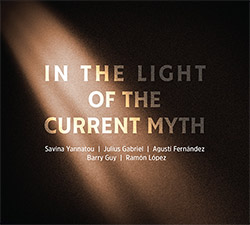
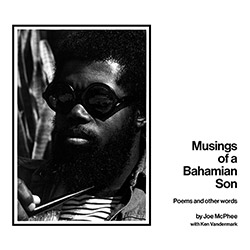


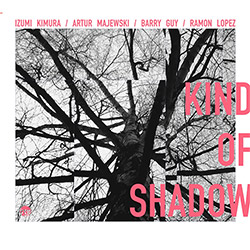
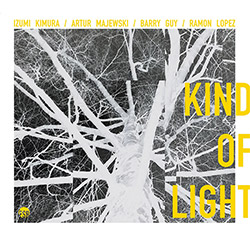
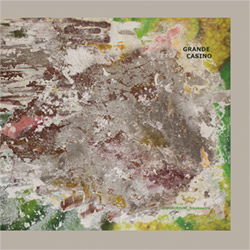
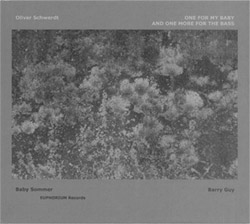
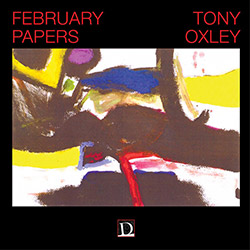
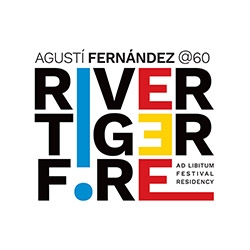
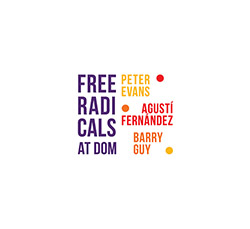
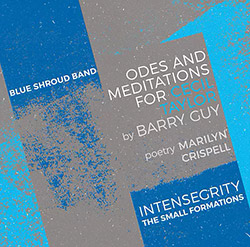


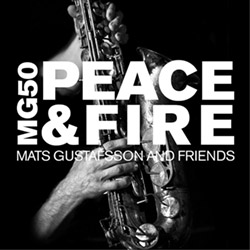







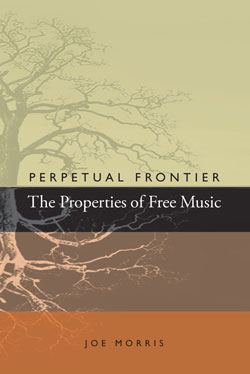
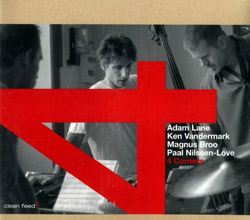





![BlueRing Improvisers: Materia [2 CDs]](https://www.teuthida.com/productImages/misc4/36513.jpg)








![Wheelhouse (Rempis / Adasiewicz / McBride): House And Home [VINYL]](https://www.teuthida.com/productImages/misc4/36462.jpg)
![+DOG+: The Light Of Our Lives [2 CDs]](https://www.teuthida.com/productImages/misc4/36009.jpg)


![Parker, Evan / Jean-Marc Foussat: Insolence [VINYL]](https://www.teuthida.com/productImages/misc4/36398.jpg)










![Deupree, Jerome / Sylvie Courvoisier / Lester St. Louis / Joe Morris: Canyon [2 CDs]](https://www.teuthida.com/productImages/misc4/36404.jpg)



![Eventless Plot | Haarvol: The Subliminal Paths [CASSETTE + DOWNLOAD]](https://www.teuthida.com/productImages/misc4/36232.jpg)










![Eventless Plot | Francesco Covarino: Methexis [CASSETTE + DOWNLOAD]](https://www.teuthida.com/productImages/misc4/36231.jpg)



![Das B (Mazen Kerbaj / Mike Majkowski / Magda Mayas / Tony Buck): Love [VINYL]](https://www.teuthida.com/productImages/misc4/36329.jpg)


![Eternities: Rides Again [CASSETTE]](https://www.teuthida.com/productImages/misc4/36247.jpg)
![Lopez, Francisco: Untitled (2021-2022) [2 CDs]](https://www.teuthida.com/productImages/misc4/36438.jpg)






![Money : Money 2 [2 CDs]](https://www.teuthida.com/productImages/misc4/35894.jpg)




![Klinga, Erik: Elusive Shimmer [VINYL]](https://www.teuthida.com/productImages/misc4/36258.jpg)
![CHANGES TO blind (Phil Zampino): Volume 9 - I Wave on a Fine Vile Mist [CD + DOWNLOAD]](https://www.teuthida.com/productImages/misc4/36061.jpg)

![Wallmart / Rubbish: Asset Protection [split CD]](https://www.teuthida.com/productImages/misc4/35900.jpg)


![+Dog+: The Family Music Book Vol. 5 [2 CDs]](https://www.teuthida.com/productImages/misc4/35897.jpg)
![Kuvveti, Deli : Kuslar Soyledi [CASSETTE w/ DOWNLOAD]](https://www.teuthida.com/productImages/misc4/36107.jpg)

![Brown, Dan / Dan Reynolds: Live At The Grange Hall [unauthorized][CASSETTE]](https://www.teuthida.com/productImages/misc4/36245.jpg)








![Palestine, Charlemagne / Seppe Gebruers: Beyondddddd The Notessssss [VINYL]](https://www.teuthida.com/productImages/misc4/36206.jpg)
![Palestine, Charlemagne / Seppe Gebruers: Beyondddddd The Notessssss [NEON GREEN VINYL]](https://www.teuthida.com/productImages/misc4/36207.jpg)

![Laubrock, Ingrid: Purposing The Air [2 CDs]](https://www.teuthida.com/productImages/misc4/35639.jpg)

![Yoko, Ono / The Great Learning Orchestra: Selected Recordings From Grapefruit [2 CDs]](https://www.teuthida.com/productImages/misc4/35841.jpg)









![Zorn, John / JACK Quartet: The Complete String Quartets [2 CDs]](https://www.teuthida.com/productImages/misc4/35609.jpg)

![Lonsdale, Eden: Dawnings [2 CDs]](https://www.teuthida.com/productImages/misc4/35480.jpg)



![Sorry For Laughing (G. Whitlow / M. Bates / Dave-Id / E. Ka-Spel): Rain Flowers [2 CDS]](https://www.teuthida.com/productImages/misc4/35985.jpg)

![Rolando, Tommaso / Andy Moor : Biscotti [CASSETTE w/ DOWNLOADS]](https://www.teuthida.com/productImages/misc4/36106.jpg)


![Electric Bird Noise / Derek Roddy: 8-10-22 [CD EP]](https://www.teuthida.com/productImages/misc4/35970.jpg)








![Elephant9 : Mythical River [VINYL]](https://www.teuthida.com/productImages/misc4/34624.jpg)



![Elephant9 with Terje Rypdal: Catching Fire [VINYL 2 LPs]](https://www.teuthida.com/productImages/misc4/35355.jpg)
![Deerlady (Obomsawin, Mali / Magdalena Abrego): Greatest Hits [VINYL]](https://www.teuthida.com/productImages/misc4/34876.jpg)







![Surplus 1980: Illusion of Consistency [CD]](https://www.teuthida.com/productImages/misc4/35069.jpg)
![Staiano, Moe: Away Towards the Light [VINYL + DOWNLOAD]](https://www.teuthida.com/productImages/misc4/35037.jpg)
![Coley, Byron: Dating Tips for Touring Bands [VINYL]](https://www.teuthida.com/productImages/misc4/17906.jpg)

![Lost Kisses: My Life is Sad & Funny [DVD]](https://www.teuthida.com/productImages/misc4/lostKissesDVD.jpg)